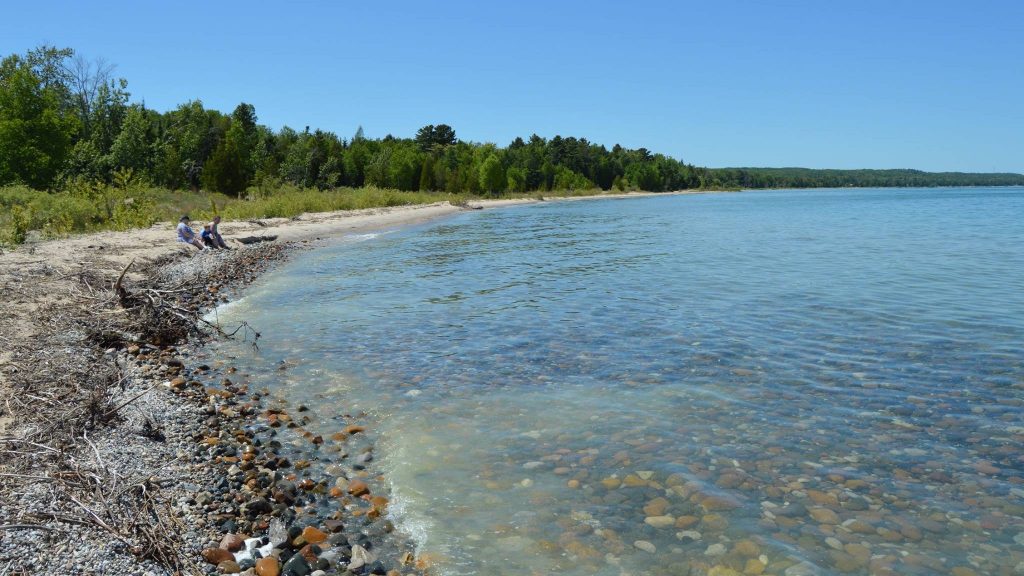Federal funding benefits Great Lakes
Congress and the White House approved $1 billion to clean up pollution in the Great Lakes. The money will also help restore natural habitats.

The Lake Huron shoreline.
The Biden administration plans to invest about $1 billion into Great Lakes restoration and cleanup projects. Congress tripled funding for the Great Lakes Restoration Initiative in 2021.
“Much of that investment is going to clean up these priority areas of contamination.” —Erika Jensen, executive director of the Great Lakes Commission
Erika Jensen is the executive director of the Great Lakes Commission. She says the money will speed up and expand restoration efforts in more than two dozen contaminated areas.
“Once that contamination is cleaned up, there will be efforts to restore habitat and make sure those areas are fishable, swimmable, and drinkable for the communities that surround them,” Jensen says.
More is more
Biden’s investment in the Great Lakes Restoration Initiative reverses his predecessor’s legacy. When Donald Trump was president, he proposed slashing funds for the GLRI, although Congress restored the money each time.
Jensen says she’s grateful.
“Much of that investment is going to clean up these priority areas of contamination,” she says. “We are also emphasizing the importance of regular annual funding for GLRI.”
Read more from WDET: New website will help with accountability and preservation, Great Lakes Commission says

The GLRI focuses on preventing harmful algal blooms and stopping invasive species. Several carp species have infested the Mississippi River and could enter the Great Lakes through an Illinois waterway.
Jensen says the U.S. and Canada are backing efforts to prevent carp from breaching the Brandon Road Lock and Dam in Joliet, Illinois.
“The states and provinces are working closely with the Army Corps of Engineers to design that project and working toward starting construction soon,” she says.
The U.S. and Canada formed the Great Lakes Commission in 1955. Its mission is to protect the lakes and the local economies they support.
Jensen and other commissioners meet with members of Congress every year to talk about their priorities.
“Not just invasive species, but also maritime transportation, coastal resiliency, and coordination with Canada,” she says.
Those meetings take place from Feb. 28 through March 3 and are open to the public.
Trusted, accurate, up-to-date.
WDET strives to make our journalism accessible to everyone. As a public media institution, we maintain our journalistic integrity through independent support from readers like you. If you value WDET as your source of news, music and conversation, please make a gift today.
